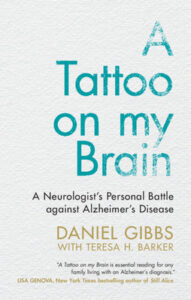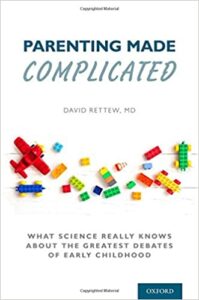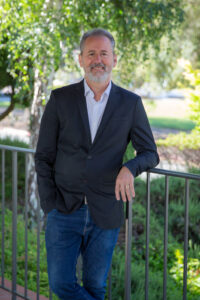by Rona | Jun 22, 2021 | KPFA, Podcasts, Radio Shows
Listen now on About Health on KPFA radio— 94.1FM (6/28/21)
Alzheimer’s, which is a neurological disorder, affects 6.2 million Americans. “Worldwide, around 50 million people have dementia, and there are nearly 10 million new cases every year. Alzheimer’s disease is the most common form of dementia and may contribute to 60–70% of cases.” —World Health Organization.
There is no cure for Alzheimer’s, but there is extensive clinical research being done. The pathological changes in a person’s brain start ten to twenty years before there is cognitive impairment…and so it’s vital that life style changes begin before typical symptoms show up. My guest, Dr. Daniel Gibbs, has been devoting his time to raising awareness about early-stage Alzheimer’s, and what people can do about it, in order to live a meaningful life for a longer time.
 Guest
Guest

Dr. Daniel Gibbs is a retired neurologist in Portland Oregon, with early-stage Alzheimer’s disease. Having spent twenty-five years caring for patients, many with dementia themselves, he is now an active advocate for the early recognition and management of Alzheimer’s. He is the author, along with Teresa H. Barker, of the recently released book “A Tattoo on my Brain. A Neurologist’s Personal Battle against Alzheimer’s Disease”
by Rona | Apr 12, 2021 | KPFA, Podcasts, Radio Shows
When it comes to parenting approaches, one size does not fit all. There are many factors that influence how you raise your child based on things like temperament, parenting style, culture, and family and social influences. There are many different styles and methods of parenting, and if you get confused about what your child or grandchild needs, you’re not alone.
Listen now to KPFA.org 94.1FM (4/19/21)
My guest on About Health, Dr. David Rettew, will join me to discuss topics such as screen time, eating habits, discipline, and the benefits and challenges of different parenting styles such as “helicopter” versus “old school” parenting. There are a lot of questions facing parents of young children, but understanding more about your child’s temperament and yours will guide you through the different stages of childhood.
Guest: David Rettew, MD is an Associate Professor of Psychiatry and Pediatrics at the University of Vermont Larner College of Medicine. Dr. Rettew has over 100 published journal articles, chapters, and scientific abstracts on a variety of child mental health topics, including a 2013 book entitled Child Temperament: New Thinking About the Boundary Between Traits and Illness. He also writes a blog for Psychology Today called, “The ABCs of Child Psychiatry.” His newest book is called Parenting Made Complicated: What Science Really Knows about the Greatest Debates of Early Parenting. You can follow him on Twitter and Facebook @PediPsych.
by Rona | Feb 28, 2021 | KPFA, Podcasts, Radio Shows
Many people who are dealing with estrangement in their family don’t talk about it because of shame and fear of judgement. Dealing with estrangement takes an emotional and often physical toll on the people involved. You are not alone! There are things that can sometimes help family members reunite.
Listen now to the show on 3/8/21 on KPFA.org—94.1FM Radio, for an interview with Dr. Joshua Coleman, author of the newly released book, Rules of Estrangement: Why Adult Children Cut Ties and How to Heal the Conflict.

 Dr. Joshua Coleman is a psychologist in private practice in the San Francisco Bay Area and a Senior Fellow with the Council on Contemporary Families. He is the co-editor, along with historian Stephanie Coontz of seven online volumes of Unconventional Wisdom: News You Can Use, a compendium of note worthy research on the contemporary family, gender, sexuality, poverty, and work-family issues. His new book, Rules of Estrangement: Why Adult Children Cut Ties and How to Heal the Conflict, was just released by Penguin Random House. He is frequently contacted by the media for opinions and commentary about changes in the American family. He has been a frequent guest on the Today Show, NPR, The BBC, NYU Psychiatry Radio, and has also been featured on Sesame Street, 20/20, Good Morning America, America Online Coaches, PBS, and numerous news programs for television. He has written for the the Atlantic, The New York Times, CNN, NBC, Aeon, Psychology Today, the SF Chronicle and other publications. He is the father of three adult children, has a teenage grandson, and lives with his wife in the San Francisco Bay Area.
Dr. Joshua Coleman is a psychologist in private practice in the San Francisco Bay Area and a Senior Fellow with the Council on Contemporary Families. He is the co-editor, along with historian Stephanie Coontz of seven online volumes of Unconventional Wisdom: News You Can Use, a compendium of note worthy research on the contemporary family, gender, sexuality, poverty, and work-family issues. His new book, Rules of Estrangement: Why Adult Children Cut Ties and How to Heal the Conflict, was just released by Penguin Random House. He is frequently contacted by the media for opinions and commentary about changes in the American family. He has been a frequent guest on the Today Show, NPR, The BBC, NYU Psychiatry Radio, and has also been featured on Sesame Street, 20/20, Good Morning America, America Online Coaches, PBS, and numerous news programs for television. He has written for the the Atlantic, The New York Times, CNN, NBC, Aeon, Psychology Today, the SF Chronicle and other publications. He is the father of three adult children, has a teenage grandson, and lives with his wife in the San Francisco Bay Area.
by Rona | Nov 28, 2020 | KPFA, Podcasts, Radio Shows
Listen now to the show on 11/30/20, KPFA radio, 94.1FM, About Health
It’s often difficult to separate health information from health misinformation. What are reliable sources? Are you more likely to believe a dramatic story about a disease rather than a recent study in a medical journal? Is what you are reading about the Covid-19 pandemic based on science or are social media sites spreading news that is even more contagious than the virus?
My guest, Dr. Seema Yasmin, has written a book called Viral BS: Medical Myths and Why We Fall for Them, where she dispels common myths and casts a critical eye on the cultural misconceptions, disinformation, and conspiracy theories surrounding health.


Dr. Seema Yasmin is a Stanford professor, medical analyst for CNN, and science correspondent for Conde Nast Entertainment. She is an Emmy Award-winning journalist, medical doctor, disease detective and author, known for her reporting on Ebola and Zika. Her new book is Viral BS: Medical Myths and Why We Fall for Them. Dr. Yasmin was a disease detective in the Epidemic Intelligence Service at the Centers for Disease Control and Prevention where she chased outbreaks in maximum-security prisons, American Indian reservations, border towns, and hospitals. You can find our more about her at seemayasmin.com, or connect on Twitter @DoctorYasmin and Instagram: @drseemayasmin.
by Rona | Nov 20, 2020 | KPFA, Podcasts, Radio Shows
Listen now at to the show from 11/23/20 on KPFA.org—94.1FM
I was in conversation with Monique Thompson, PhD, about her new book, Cognitive Behavioral Therapy for Depression
During these stressful times many people are feeling anxious and depressed, and some people are struggling with grief from the loss of a loved one. Feeling stress, grief, or having the blues, is not the same as suffering from depression. Depression is one of the most common mood disorders, and is highly treatable, although no two people are affected the same way by depression and there is no “one-size-fits-all” for treatment.
1-800-273-8255 is the National Suicide Prevention Lifeline. If you or someone you know is considering suicide, call this number. The Lifeline provides 24/7 free and confidential support for people in distress, and resources for you and your loved ones.
Guest:

Monique Thompson is a licensed clinical psychologist. She received a doctoral degree in clinical psychology from California School of Professional Psychology. She is a certified cognitive therapist and Diplomate of the Academy of Cognitive Therapy. Dr. Thompson is trained in Cognitive Behavior Therapy for Insomnia (CBT-I), an empirically supported treatment for insomnia and other sleep disorders. Dr. Thompson has extensive experience providing individualized cognitive therapy to adults and teens. She treats depression, anxiety disorders, sleep disorders, executive functioning deficits, and challenging life transitions. She has practiced in a variety of settings, including Kaiser Permanente in Walnut Creek and Pleasanton, UC Berkeley, and private practice. She spent several years at the Golden Bear Mood and Sleep Research Center at UC Berkeley as a member of a treatment development team, and has published research on memory mechanisms and interventions to improve individual therapy outcomes. She is adjunct faculty at UC Berkeley Extension. She recently co-authored a book on Teen Insomnia with Dr. Michael Tompkins, The Teen Insomnia Workbook. Her second book, Cognitive Behavioral Therapy for Depression: Strategies to Challenge Negative Thinking and Start Living Your Life was released on November 13, 2020. You can reach her at Monique Thompson, PsyD.
(510) 652-4455, ext. 1.
 Guest
Guest



 Dr. Joshua Coleman is a psychologist in private practice in the San Francisco Bay Area and a Senior Fellow with the Council on Contemporary Families. He is the co-editor, along with historian Stephanie Coontz of seven online volumes of Unconventional Wisdom: News You Can Use, a compendium of note worthy research on the contemporary family, gender, sexuality, poverty, and work-family issues. His new book, Rules of Estrangement
Dr. Joshua Coleman is a psychologist in private practice in the San Francisco Bay Area and a Senior Fellow with the Council on Contemporary Families. He is the co-editor, along with historian Stephanie Coontz of seven online volumes of Unconventional Wisdom: News You Can Use, a compendium of note worthy research on the contemporary family, gender, sexuality, poverty, and work-family issues. His new book, Rules of Estrangement


